Charles Pakana (VAN):
Joining me today on the Referendum 23 Tapes podcast is the CEO of the Victorian Aboriginal Community Controlled Health Organisation, Aunty Jill Gallagher, proud Gunditjmara woman. Aunty Jill, thanks for joining us here on the podcast.
Aunty Jill Gallagher AO (VACCHO):
I’m really happy to be here.
Charles:
Aunty Jill, let’s get right into it. We’re talking about the referendum and the proposed constitutionally enshrined Voice to Parliament. Let’s focus on health rather than the politics of it. Now, when it comes to closing the gap, we’ve got 17 key metrics. Five of those are in the health area, and they’re the top five key metrics. How do you see and your team sees that a constitutionally-enshrined Voice to Parliament will have an impact on health outcomes for First Nations peoples right across Australia?
Aunty Jill:
Okay. Can I say I believe 100% that if Aboriginal people are listened to and are in the driver’s seat of coming up with solutions to a lot of the problems that our communities currently face in the health space, there will be success? Now, I can mention two projects here at VACCHO and one of them is the Koori maternity services strategy. Now, 20 odd years ago, VACCHO developed a strategy and it was called From Her to Maternity, and that strategy was to build up Aboriginal at a local level, the co-op’s capacity to be able to look at Koori Maternity.
Charles:
So when you’re talking about the co-ops, you’re talking about all 23 of your members right across the state?
Aunty Jill:
Yes, very much so, the VACCHO membership. So putting the decision-making or the influence back in the hands at a local level of community control. So VACCHO and our members developed the KMS program, and it’s one of the most successful programs that you see today around one, reducing the low birth weights that we currently have in Victoria. Still not 100%, by the way, but it is reducing. So that program’s been very successful. The other program that VACCHO and our members, one of the biggest issues at the moment is that our people don’t access preventative programs around cancer screening.
Charles:
How would the Voice help that?
Aunty Jill:
The Voice is about empowerment. The Voice is about governments listening to this Voice, and the Voice holding governments accountable. For example, 30 odd years ago, the Royal Commission into Aboriginal Deaths in Custody, who’s holding governments accountable for the implementation of those recommendations? They’re probably a bit outdated now. They probably need to be upgraded, but who’s holding them accountable? We don’t have a mechanism to hold governments and the service sector, including Aboriginal and non-Aboriginal, accountable for better outcomes.
Charles:
Well, you mentioned low birth weights here in Victoria still being a problem. A lot of people, quite frankly, believe that the health problems with First Nations peoples don’t exist within Victoria or New South Wales, but they may exist within the more rural areas such as the Northern Territory and those more remote areas. What’s the reality of this, though?
Aunty Jill:
The reality of this for the health outcomes of Aboriginal people, say living in Fitzroy, are the same outcomes of those people living in Fitzroy Crossing. So just that we have different solutions, by the way, for those living in Fitzroy Crossing would have different solutions for us, as our people living in Fitzroy. There’s different solutions right across this continent. For example, when I did the original Recognize campaign road trip, I stopped at a small remote community in the APY Lands. I asked one of the Aboriginal health workers, “If you had a magic wand, what would you want in this community, very remote Aboriginal community?”
You know what they said to me? “We want an in-ground swimming pool.” No, that’s not funny. There are health benefits to that, which I didn’t realize because one of the biggest problems in that remote community was lack of water. Okay, in-ground swimming pool, there’s a lot of spinoffs, benefits, and that is, no school, no pool, that’s one. Second one is, if you have an in-ground swimming pool, you also have to have a shower before you go in. So that helps with the ear, eyes and nose issues in remote communities. Where in Melbourne, an in-ground swimming pool’s not the solution.
Charles:
Yeah, of course.
Aunty Jill:
So the point that I’m making is, we have the solutions.
Charles:
People might say though, that, “Well, look, why do you really need a voice even at a local or national level, when you’ve already got VACCHO, which is a peak body for 23 Aboriginal health organizations and co-ops around Victoria? What value is the Voice going to be? And contra wise, won’t it actually work in conflict with VACCHO?
Aunty Jill:
No, I don’t see that at all. The Voice will add humongous value and it’ll add a voice at the national level. We don’t have that. And a voice isn’t about service provision. I see the Voice say to VACCHO, “Well in Victoria, you haven’t done this. Why not? What’s the barrier? What’s the solutions? Is it the lack of resources? Can our voice help you with that?” The Voice just isn’t about better outcomes in the health arena. The Voice is about having proper and real recognition that we are the first people of this country and that all Australians should be proud of that. And all Australians should be able to travel overseas if they can and be proud that they have one of the oldest living cultures on the planet in their own backyards.
Charles:
What challenges were there? Because VACCHO show has come out as a yes supporter for the Voice. What challenges were there within the membership of VACCHO and also within the broader organization of VACCHO to achieve that? Because there’s dissenting beliefs and opinions on this.
Aunty Jill:
Yeah. We didn’t have a great deal of challenges. Our board supported 100% VACCHO coming out and making a statement that we support a yes campaign. So it wasn’t a big challenge, but the challenge is that there are Aboriginal people out there, not a lot, but there are Aboriginal people out there who have different points of view, and they’re allowed to have that, by the way. But all we got to remember is that the last polling we did, it was something like 83% of Aboriginal and Torres Strait Islander people support a yes vote. You can’t go away from that 83%. So in a democratic process that’s a no-brainer.
Charles:
That the numbers win.
Aunty Jill:
Okay. So yes, we still have some aboriginal people who are not on board, but you know that the expectation that we have to have 100% consensus, it’s ludicrous.
Charles:
We’re never going to get that.
Aunty Jill:
We’re never going to get it on anything.
Charles:
Oh dear. So what are some of the other non-health metrics that you believe can be supported by the Voice?
Aunty Jill:
I can’t remember what year that Australia was declared terra nullius, but I do know it was declared by a white judge in London, and the constitution was proclaimed what? Back in 1901 by all these old white men. And that’s fine. That was the society of the day back then here in this continent. And there was a debate by those white men. Should we include blackfellas, aboriginal people? And of course we lost out. They said no. So now it’s time to action what the High Court’s overturned, the terra nullius.
Charles:
What if the no vote wins? A lot of people continually ask everyone, well, what are you going to do if you wake up the morning after and it’s a no vote that’s win? Does the fight continue? Do you seek for a legislated body rather than a constitutionally enshrined body? From your perspective, what does happen if there’s a no vote? Because the fight can’t stop, obviously.
Aunty Jill:
And the fight will never stop, by the way. But I’m confident it will be a yes vote because it is a modest ask. Really, when you look at what the Uluru Statement is asking for, no one in this country loses anything. If anything, they gain 65,000 years of culture instead of 250.
Charles:
It’s interesting, you’re saying that no one in this country loses anything because you’ve been through this before when you were the Victorian Treaty Advancement Commissioner and you had to go out there across Victoria talking to non-aboriginal communities who were really scared that they were going to lose their backyards, just like Native Title before that if Treaty started to eventuate. So do you see this ongoing cycle of scare mongering from the conservative media and those in opposition?
Aunty Jill:
Oh, can I say, I do see it, and it’s very sad that the media, and I don’t know whether it’s all the media, Charles, I don’t know, but I’m so disappointed that the media can’t see the benefit of this. And it’s not about selling newspapers no more because we don’t have newspapers, do we?
Charles:
That’s right. Well, I think we do, but just not as popular. It’s all on social media and Sky News on YouTube.
Aunty Jill:
Yeah. So I don’t know what their fear is because every citizen of this country has everything to gain by a yes vote, every citizen.
Charles:
Does it frustrate you though that these arguments continually pop up?
Aunty Jill:
It frustrates me that we have people that believe it. Your backyard is not under threat in any way, shape or form. And when you look at what Nelson Mandela did when he got out of jail and became president of South Africa, look at what he achieved. The same here. So people aren’t going to lose. I would love for my next door neighbors to actually know about my culture and know how long we’ve been here, that we walked with dinosaurs.
Charles:
This has always been a passion of yours, always, as long as I’ve known you.
Aunty Jill:
I mean, can you imagine what it would’ve been like pre-colonization, 30,000 years ago, walking with dinosaurs on this continent? It’s something that we all should be proud of.
Charles:
Absolutely. I want to bring it back now to the health side of things because we did digress there a little bit. There are five key areas of health in closing the gap, and one of them is the tragic suicide rate. Do you believe that the Voice can help in addressing the tragedy of suicide within our First Nations communities here in Victoria and more broadly?
Aunty Jill:
I honestly believe the Voice can help. Just the fact alone, that if we are successful in a yes vote, tells the rest of the Aboriginal and Torres Strait Islander communities that Australia does care. That alone is such a big boost to your confidence, to the feeling that you’re valued as a distinct culture in this country. That alone helps. I honestly believe a voice can make a big difference in all those areas. We’re doing a lot of work here in Victoria around suicide prevention, and as we know, the alarming rates that the coroner released, I think it was last year, he released his report where it said, “Here in Victoria alone, suicides within the Victorian Aboriginal community increased by 75%.”
Charles:
It’s increased. The Referendum Working Group and the Calma-Langton report have both come out with a model that has the local and regional voices feeding up to the national. Now, obviously, the local and regional voices seems to be overlooked quite often by the No Campaign. They simply think that the day after a successful referendum, we’re going to have a national voice there. Do you believe that the local and regional voices here in Victoria could work effectively with peak organizations such as VACCHO?
Aunty Jill:
Yes.
Charles:
How do you see that would work?
Aunty Jill:
I need to bring it back down to Victoria so I can articulate properly so I don’t waffle on and take up all your time. But we’ve got the First People’s Assembly here, and we just went through elections. So they’re our elected representatives. Okay. So how does VACCHO feed into them? That’s the big question. How do we ensure that they, the First People’s Assembly, keep us accountable for better outcomes in all these areas?
Charles:
Now just to clarify here though, you’re not advocating that the First People’s Assembly of Victoria becomes the local and regional voices for the National Voice, are you?
Aunty Jill:
They need to be at the table. Our elected representatives need to be at the table. I think I need to articulate what we did here in Victoria to explain what I think should be mirrored at the national level. What we did here in Victoria when designing the First People’s Assembly, we knew we had to have reserved seats for recognized traditional owner groups under the Traditional Owner Settlement Act. Right? We couldn’t ignore them. And we also built in, every time there’s a new group that comes up and gets recognized, they have a reserved seat at that table. But we also knew the importance of having a general election, so other people who might not be connected to their TO group. So there needs to be an election for that also. So that’s what I think should be mirrored at the Commonwealth level. There will be reserve seats for structures in each jurisdiction. And in Victoria it’s the First People’s Assembly, but I think there should be also an election that happens, to elect other people who can sit around that table also.
Charles:
Beautiful. So has any previous model to your knowledge actually, whether it’s ATSIC or the predecessors to ATSIC, have any of them actually embraced relationships with all the peak bodies right across Australia?
Aunty Jill:
In an ideal world, we should have a mechanism, say for example, if we have the National Voice, and that might take another 12 months to design, by the way. It has to.
Charles:
It’s got to go through legislation.
Aunty Jill:
Yeah, and there’s got to be conversations at local levels about what their views are, and it all feeds in. But there’s got to be a mechanism, say for example, Victoria, how VACCHO can feed up to that national voice. What are the health issues here in Victoria and what are the challenges? So they know that when they talk to governments that, hey, by the way, Victoria’s saying this, and our research and our data is showing this. So there’s got to be a mechanism. We haven’t got it down pat here. At the moment, I know the state government sends really important things to the First Peoples for their inputs, but there’s still not a formal mechanism for that to happen. And there should be, and eventually down the track that will happen.
Charles:
The fact is though, it seems that for those people who continually hark on about, well, the Voice, whether it’s national and local and regional, are all going to be bureaucratically appointed. And don’t you love this term, elite aboriginal people? You’ve got to love that one. Have you not heard that one before?
Aunty Jill:
No.
Charles:
Oh, that’s a classic. That’s been doing the rounds for a couple of months.
Aunty Jill:
Oh, elite.
Charles:
Elite aboriginal people.
Aunty Jill:
So who’s elite?
Charles:
Well, I don’t know, but-
Aunty Jill:
Charles, I’m not bragging here, by the way, I’ve got AO after my name, so I’ve been awarded the Order of Australia, but there’s more important initials that I would love to have after my name.
Charles:
And they are? Come on.
Aunty Jill:
And they are GRB. They mean a lot to me. GRB.
Charles:
Gunditjmara, can I guess?
Aunty Jill:
No, no, no, no. Grassroots blackfella.
Charles:
If only we had more GRBs out there.
Aunty Jill:
There’s a lot of GRBs out there. A lot of them aren’t in positions of influence and a lot of them are, but every blackfella is a GRB.
Charles:
So you believe that we’re going to get more GRBs than elite Aboriginal people in the Voice?
Aunty Jill:
I don’t think there are any elite Aboriginal people, by the way. I don’t want to mention names, but a well-known professor at the national level who’s been a strong leader in the Uluru. I mean, I saw her story, I think it was on the 7:30 Report a couple of weeks ago, and her upbringing-
Charles:
Nothing elite about that.
Aunty Jill:
Nothing elite about that, by the way. So I think we need to be careful about saying elite blackfellas. To me, every blackfella is a GRB.
Charles:
I couldn’t agree with you more. Aunty Jill Gallagher, thank you so much indeed for coming onto the Referendum 23 Tapes, and we’ll chat again soon, I’m sure.
Aunty Jill:
Thank you very much.


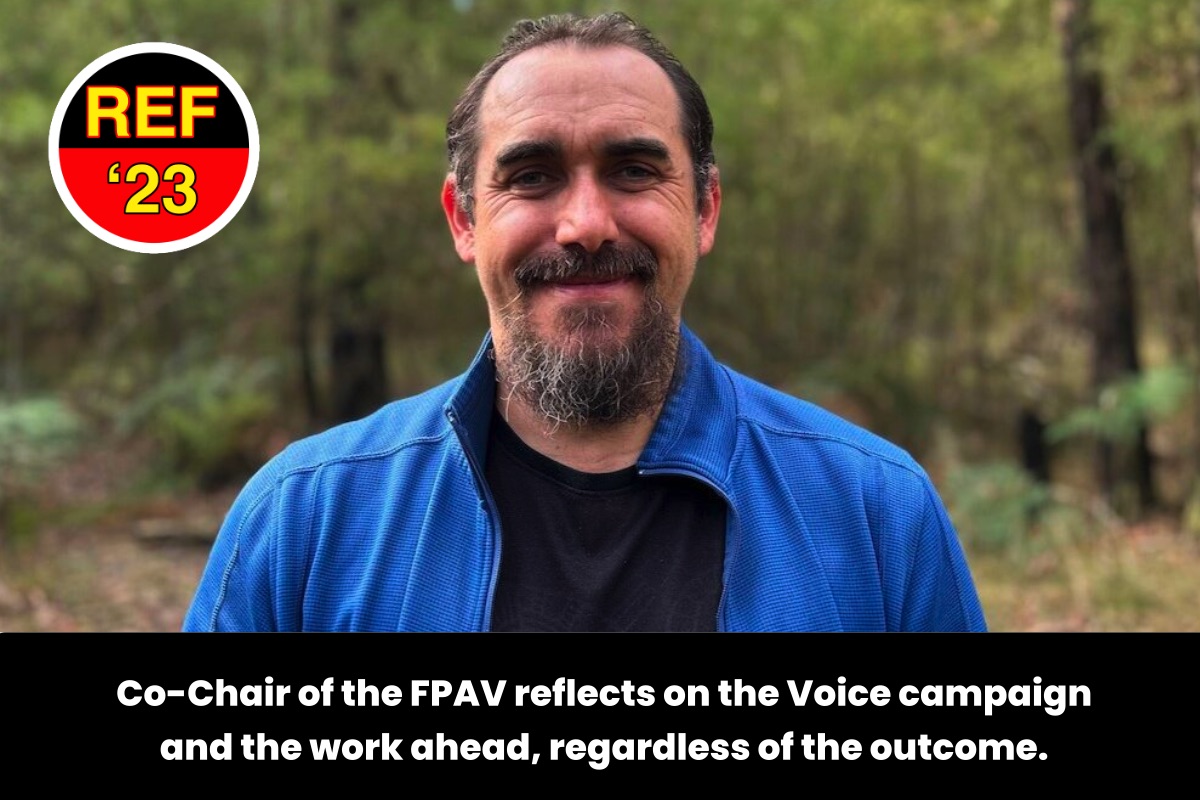
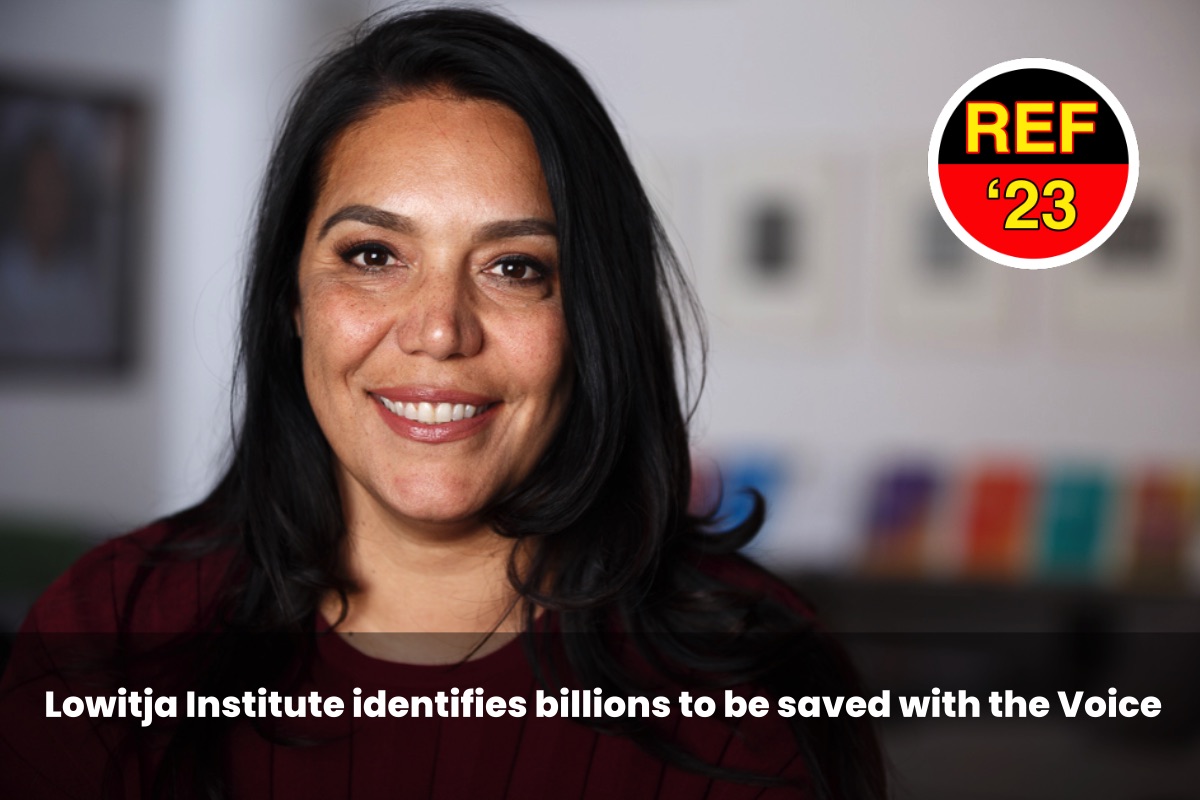
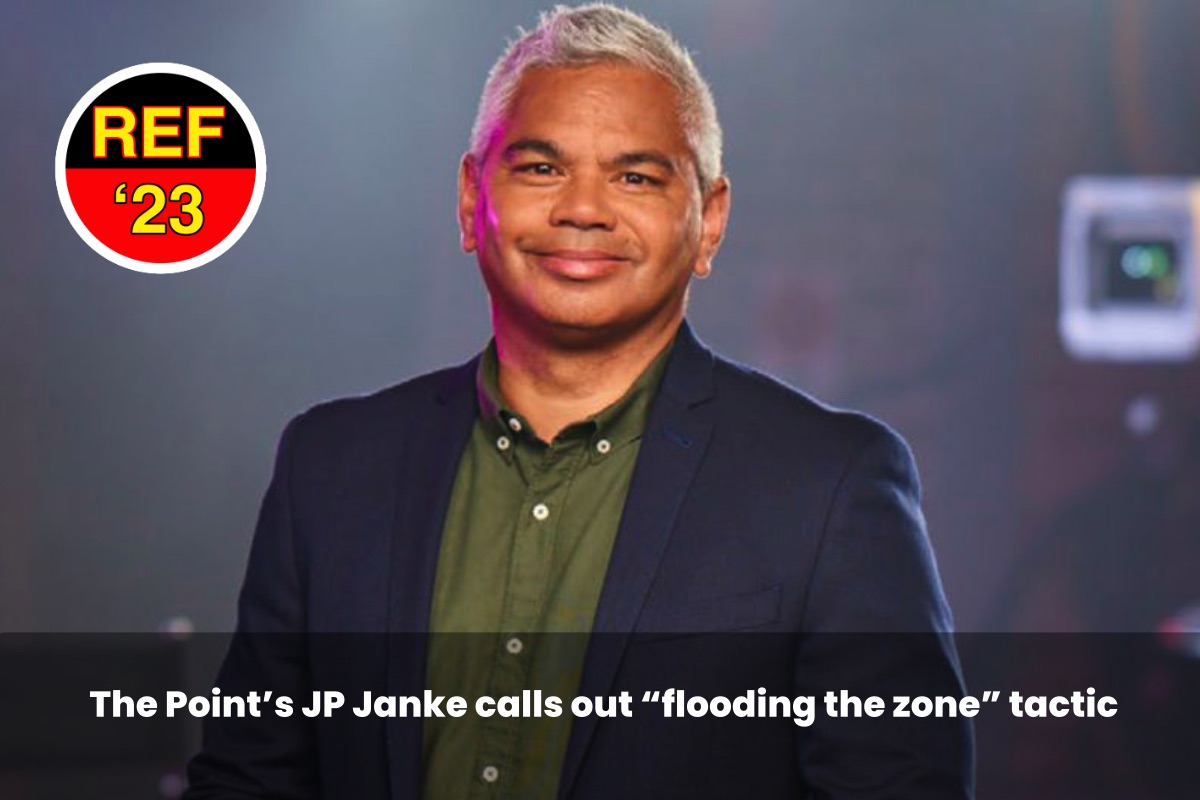
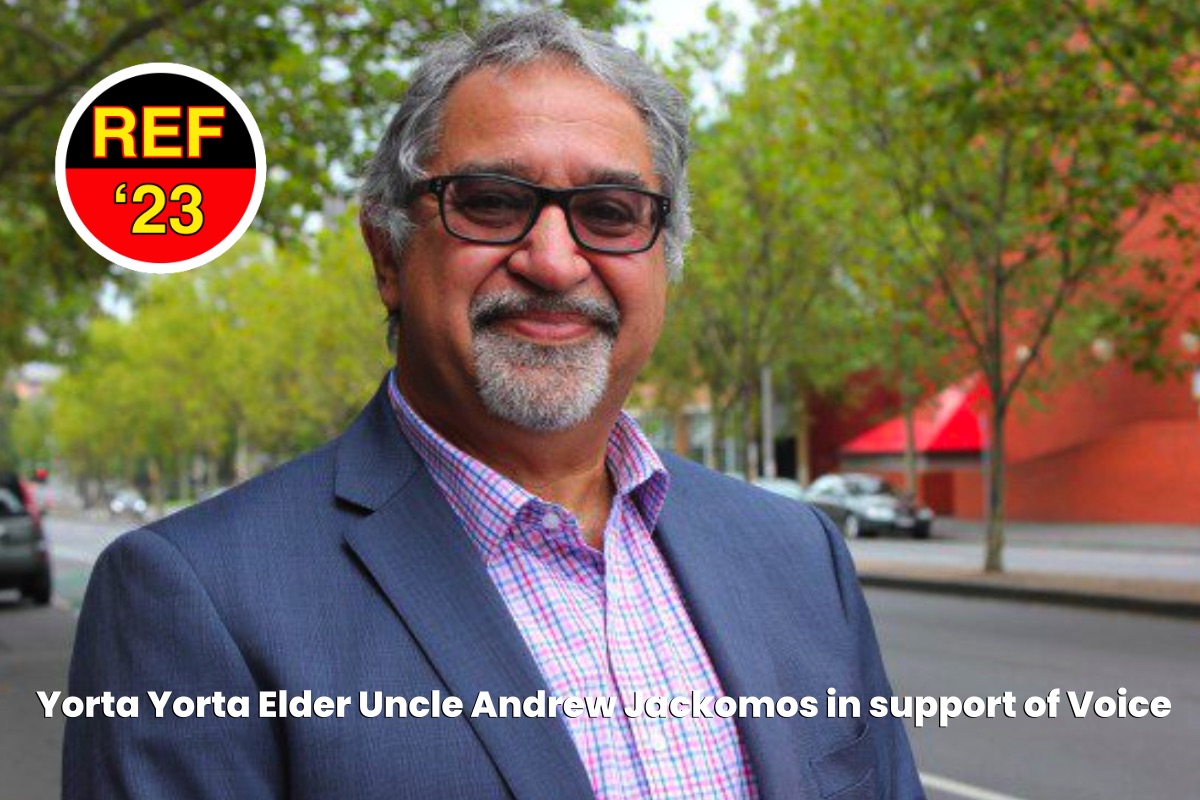
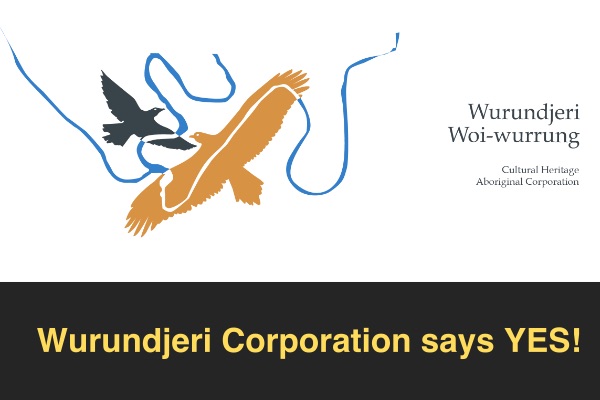

0 Comments